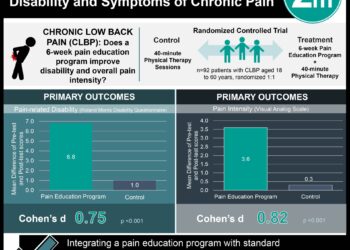One-on-one training leads to improved virtual-reality laparoscopic performance
Image: PD
1. One-on-one instructor feedback improved the virtual-reality laparoscopic (VRL) performance of students with low initial scores.
2. Students using VRL for the first time show widely disparate performance levels.
Evidence Rating Level: 2 (Good)
Study Rundown: Virtual-reality laparoscopic software, when used as a training tool, has been successful in improving live operative performance. When interacting with the laparoscopic simulator for the first time however, students performed at widely disparate skill levels. The authors hypothesized that tailored one-on-one feedback could help bring lower performing students to the level of students who were relatively proficient from the outset. The study observed 20 medical students perform a complex bimanual VRL maneuver. The results of this initial test showed that some students were high performing (high performing group) while others performed less well (low performing group). For the next two days of training, only the low performing group received one-on-one feedback. The authors found that subsequent to the tailored feedback, the skill-level gap between the high and low performing groups shrank significantly. While low performing students were more likely to be female, females also demonstrated greater benefit from the feedback. Although conducted with sound methodology, a larger sample size is needed to support conclusions on the merits of one-on-one feedback or gender specific differences in VLR performance.
Click to read the study in Surgical Endoscopy
Relevant Reading: Effect of virtual reality training on laparoscopic surgery: randomised controlled trial
In-Depth [prospective cohort]: This study observed the performance levels of medical students using VLR before and after one-on-one instruction. At day one of training there was disparity in the performance levels of students. The high performing group had a global z-score that was significantly higher than the low performing group ( -2.5 vs -19.4 , p < .001). In a subsequent trial, after the low performing group received tailored feedback, the z-scores of two groups were not significantly different.
By Amir Tarsha and Chaz Carrier
More from this author: Local excision inferior to major resection in T1-2 colon cancer and T2 rectal cancer, Secondary mastoid obliteration improves quality of life for patients with chronic otitis media, Healthcare reform linked with reduced racial disparities in surgical care, VATS lobectomy may be preferred in COPD with non-small-cell lung cancer
©2012-2013 2minutemedicine.com. All rights reserved. No works may be reproduced without expressed written consent from 2minutemedicine.com. Disclaimer: We present factual information directly from peer reviewed medical journals. No post should be construed as medical advice and is not intended as such by the authors, editors, staff or by 2minutemedicine.com. PLEASE SEE A HEALTHCARE PROVIDER IN YOUR AREA IF YOU SEEK MEDICAL ADVICE OF ANY SORT.






